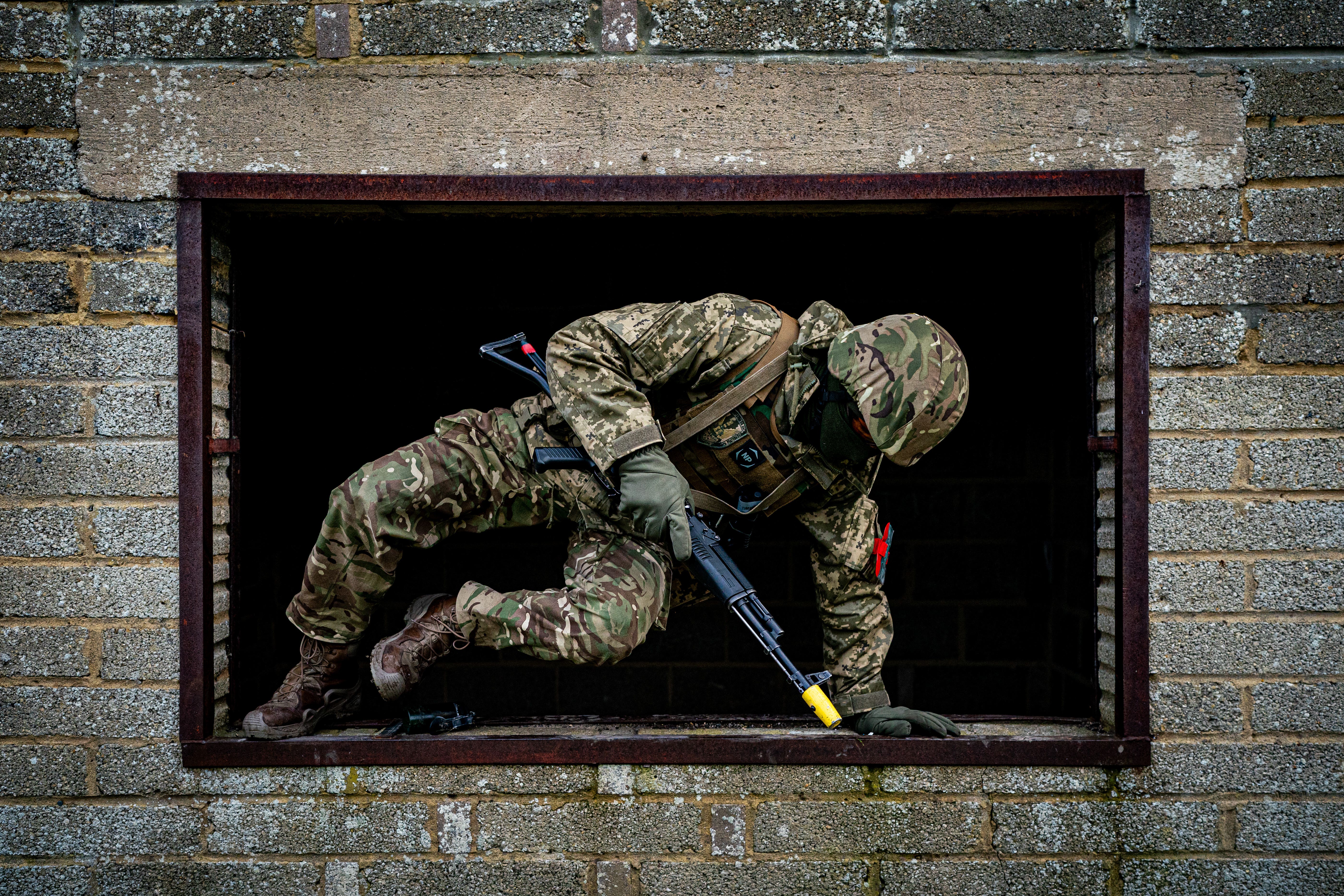Ministers demand extra defence spending in the face of rising global threats
Two Government ministers have publicly demanded a faster increase in defence spending, arguing the UK should ‘lead the way’ among western allies.

Your support helps us to tell the story
From reproductive rights to climate change to Big Tech, The Independent is on the ground when the story is developing. Whether it's investigating the financials of Elon Musk's pro-Trump PAC or producing our latest documentary, 'The A Word', which shines a light on the American women fighting for reproductive rights, we know how important it is to parse out the facts from the messaging.
At such a critical moment in US history, we need reporters on the ground. Your donation allows us to keep sending journalists to speak to both sides of the story.
The Independent is trusted by Americans across the entire political spectrum. And unlike many other quality news outlets, we choose not to lock Americans out of our reporting and analysis with paywalls. We believe quality journalism should be available to everyone, paid for by those who can afford it.
Your support makes all the difference.Rishi Sunak is under pressure to boost defence spending after two serving ministers publicly called for a “much greater pace” of investment.
The call from Foreign Office minister Anne-Marie Trevelyan and security minister Tom Tugendhat came after the Budget was criticised for failing to boost defence spending.
The two senior Tories said the UK needs to “lead the way” by increasing defence and security spending to at least 2.5% of gross domestic product (GDP), a measure of the size of the economy.
While the Government has an aspiration to reach 2.5%, beyond the Nato-wide target of 2%, the ministers said the global risk posed by countries including Russia and China meant there was no time for delay.
“The sad truth is that the world is no longer benign,” they said.
“Protecting ourselves requires investment. And effective investment means that our industrial complex must grow and strengthen at much greater pace than at present.
“We cannot turn on the complex platforms and weapons which ensure military advantage overnight. We must start that growth now, invest at pace to support our allies and stay ahead of our adversaries.”
Former defence secretary Ben Wallace and prime minister Boris Johnson made inroads into growing our defence budgets, which had been shrinking in real terms for years, but that only filled the hole. Now we need growth
In the Budget, Jeremy Hunt said “our spending will rise to 2.5% as soon as economic conditions allow”, but there was no detail of how that would happen.
The article by Ms Trevelyan and Mr Tugendhat was not required to be cleared by No 10 because it is a social media post and it is also in line with Government policy on increasing spending to 2.5%.
However, it is a very visible sign of unease within the Tory ranks about the state of the defence budget.
The Commons’ spending watchdog warned on Friday that the Ministry of Defence has no credible plan to fund the armed forces the Government wants, leaving the UK increasingly forced to rely on its allies.
The gap between the MoD’s budget and the cost of the UK’s desired military capabilities has ballooned to £16.9 billion, its largest deficit ever, despite an injection of £46.3 billion over the next 10 years, the watchdog said.
But the influential Public Accounts Committee (PAC) warned that the real deficit could be closer to £29 billion as some parts of the armed forces only included capabilities that were affordable rather than all those the Government had requested.”
Ms Trevelyan, the Indo-Pacific minister, and Mr Tugendhat were both concerned about the level of defence spending needed to respond to China’s increasingly assertive global role.
“China announced this week that it was increasing its defence spending by another 7.2% this year, taking it to 230 billion dollars. That’s more than twice what it was a decade ago.
“Russia is committed to spending 40% of its expenditure on defence and security this year. Vast sums by any standard to fight its illegal war in Ukraine,” they said.
“By contrast, the US defence budget is 842 billion dollars this year, up less than 50% over the same period. And the UK’s defence budget has risen from £43 billion to £55 billion – an increase of only 28%.”
They added: “It’s clear to us that the UK needs to lead the way in increasing our own domestic defence and security spending commitments to 2.5% and beyond.
“Former defence secretary Ben Wallace and prime minister Boris Johnson made inroads into growing our defence budgets, which had been shrinking in real terms for years, but that only filled the hole. Now we need growth.”
In a Sunday Times interview, Mr Sunak defended his record on funding the military.
“I would just point to our record here as chancellor when I oversaw the largest increase in the defence budget since the end of the Cold War with a £24 billion uplift,” he said.
“The whole point is, we recognised that the world that we’re living in was becoming more dangerous, and we had to invest more to protect the country against that.”